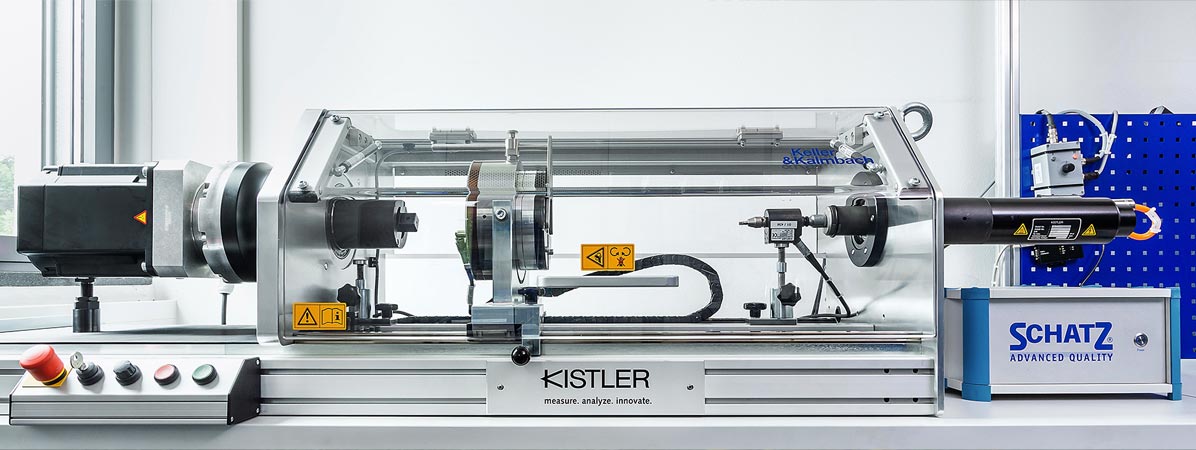Quality management
Keller & Kalmbach attaches great importance to the highest quality. This refers not only to goods, but also the actions of employees. The pronounced focus on quality can be seen in our management systems. Our customers can access a worldwide, audited pool of suppliers, for which we perform on-site services in purchasing, materials management and logistics.
A wide range of measurement and test equipment as well as broad specialist knowledge mean that we are always prepared to meet your requirements. Beside hardness tests and measuring inspections, we offer various other testing processes.
Beside certification to DIN EN ISO 9001:2015, we also meet the strict requirements in the automotive sector with VDA 6.2. We have received various awards over the years for our high quality standards, for example the Bavarian Quality Award. With EMAS, we have also been using an extensive environmental management system since 2017. You can find more certificates in our download portal.
Certifications
Keller & Kalmbach has established a quality management system according to ISO 9001. For our customers in the automotive industry, we are certified according to VDA 6.2. With our EMAS certification we would like to communicate our attitude towards the environment.
In order to strengthen the confidence of our customers in our company, we have had ourselves certified in various areas: DIN EN ISO 9001 / VDA 6.2 / EMAS
The DIN EN ISO 9001: 2015: standard defines requirements for a quality management system. Through the application of a documented QM system, the connection between a regulated organization and the company's success should be demonstrated. With clear regulations, clearly defined responsibilities and working within the process structure, the overall success is to be ensured via product quality and customer satisfaction. In DIN ISO 9001:2015, the High Level Structure creates a uniform basic structure and a basic system.
In 2007, we had our environmental protection system certified according to the ÖKOPROFIT standard of the City of Munich and have been working on continuous improvement. In November 2017, we were awarded the EMAS certificate. In our corporate policy, the aspect of the environment represents an important element. With the environmental management system EMAS and the permanent effort to relieve the environment, we provide our contribution to a better understanding of the environment. We pursue these guiding principles in our environmental policy.
Test instruments
Below you can see some of the testing instruments we use at Keller & Kalmbach to meet the high quality and safety requirements at all times.
Quality assurance
Initial sampling
Initial sample test reports are mainly used in the automotive industry for the release of new products and processes. Generally, initial samples are specified according to VDA 2 or PPAP, but these must be agreed in the order.
In general, initial sampling is not provided for standard parts according to VDA. The cost of sampling is usually very high in relation to the price of the part. In any case, a simplified form of the product and process approval procedure should be used here.










